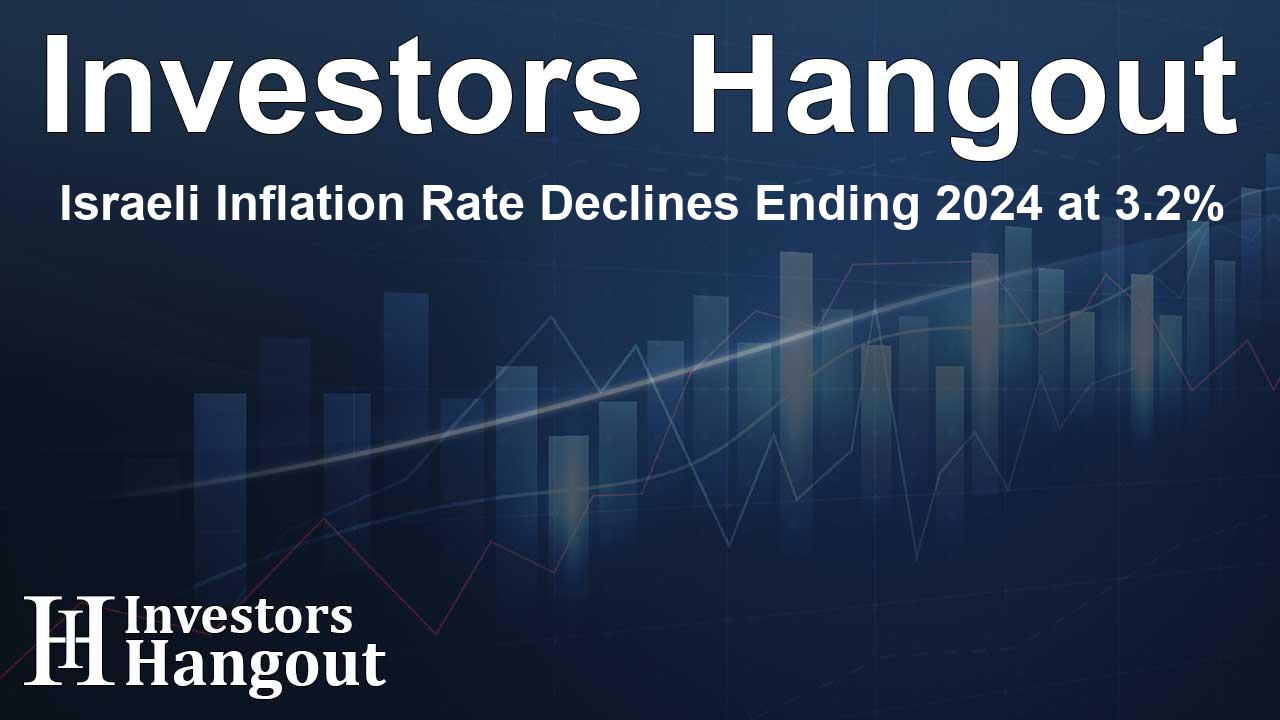Israeli Inflation Rate Declines Ending 2024 at 3.2%

Inflation Trends in Israel: A Closer Look
Recent statistics reveal that Israel's inflation eased significantly in December, concluding 2024 at a rate of 3.2%. This figure, reported by the Central Bureau of Statistics, indicates a notable decline from the previous year's rate of 3.0%. Analysts suggest that this decline could encourage policymakers to consider lowering interest rates in the near future.
Factors Influencing the Decline
The annual inflation rate fell to its lowest level since July, decreasing from 3.4% in November. This shift was somewhat unexpected, as forecasts predicted the rate would stabilize at 3.4%, reflecting the uncertainty surrounding economic trends in the region. Despite the drop, the current rate still surpasses the government’s target range of 1% to 3%, underscoring ongoing inflationary pressures.
Impact on Economic Policy
The decision to potentially reduce interest rates hinges on the balance between inflation and economic growth. A lower inflation rate could stimulate growth by decreasing borrowing costs and encouraging spending. However, officials must also consider whether the inflation figures indicate stable economic conditions or persistent underlying issues.
Looking Ahead: Economic Prospects
As Israel navigates these economic challenges, stakeholders are paying close attention to inflation trends and the Central Bank’s response. Maintaining inflation within the target range will be crucial for fostering a stable economic environment, which benefits both consumers and businesses alike. The outcomes in the coming months will thus be pivotal for the future goals of economic policy in Israel.
Frequently Asked Questions
What was Israel's inflation rate at the end of 2024?
Israel's inflation rate at the end of 2024 was reported at 3.2%.
How does the December inflation rate compare to previous months?
The December inflation rate was lower than November's rate of 3.4%, marking a significant decline.
What is the government's target inflation range?
The government's target inflation range is between 1% and 3% annually.
What do decreasing inflation rates suggest for interest rates?
Decreasing inflation rates may prompt policymakers to consider lowering interest rates to stimulate economic growth.
Why is monitoring inflation important?
Monitoring inflation is essential as it impacts economic policy, consumer purchasing power, and overall economic stability.
About The Author
Contact Thomas Cooper privately here. Or send an email with ATTN: Thomas Cooper as the subject to contact@investorshangout.com.
About Investors Hangout
Investors Hangout is a leading online stock forum for financial discussion and learning, offering a wide range of free tools and resources. It draws in traders of all levels, who exchange market knowledge, investigate trading tactics, and keep an eye on industry developments in real time. Featuring financial articles, stock message boards, quotes, charts, company profiles, and live news updates. Through cooperative learning and a wealth of informational resources, it helps users from novices creating their first portfolios to experts honing their techniques. Join Investors Hangout today: https://investorshangout.com/
The content of this article is based on factual, publicly available information and does not represent legal, financial, or investment advice. Investors Hangout does not offer financial advice, and the author is not a licensed financial advisor. Consult a qualified advisor before making any financial or investment decisions based on this article. This article should not be considered advice to purchase, sell, or hold any securities or other investments. If any of the material provided here is inaccurate, please contact us for corrections.
